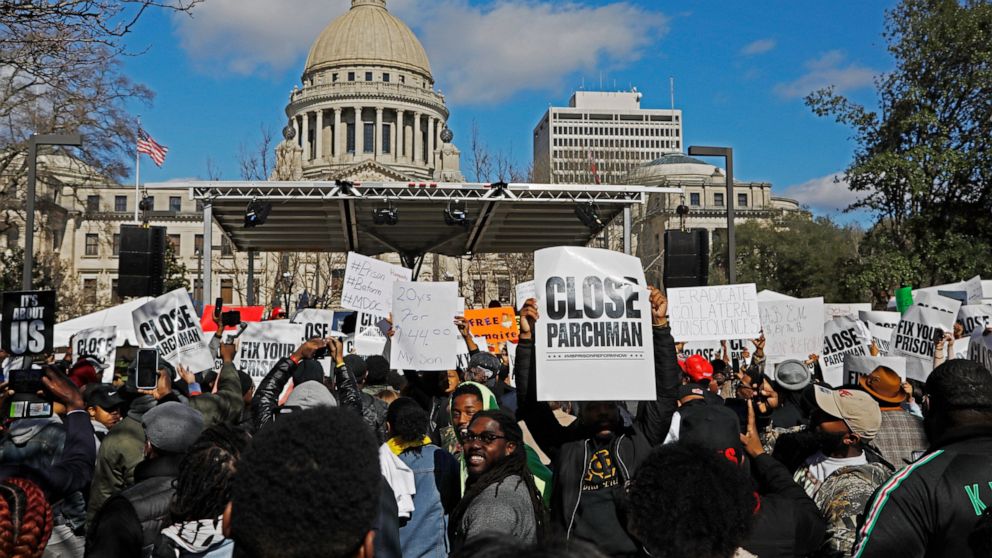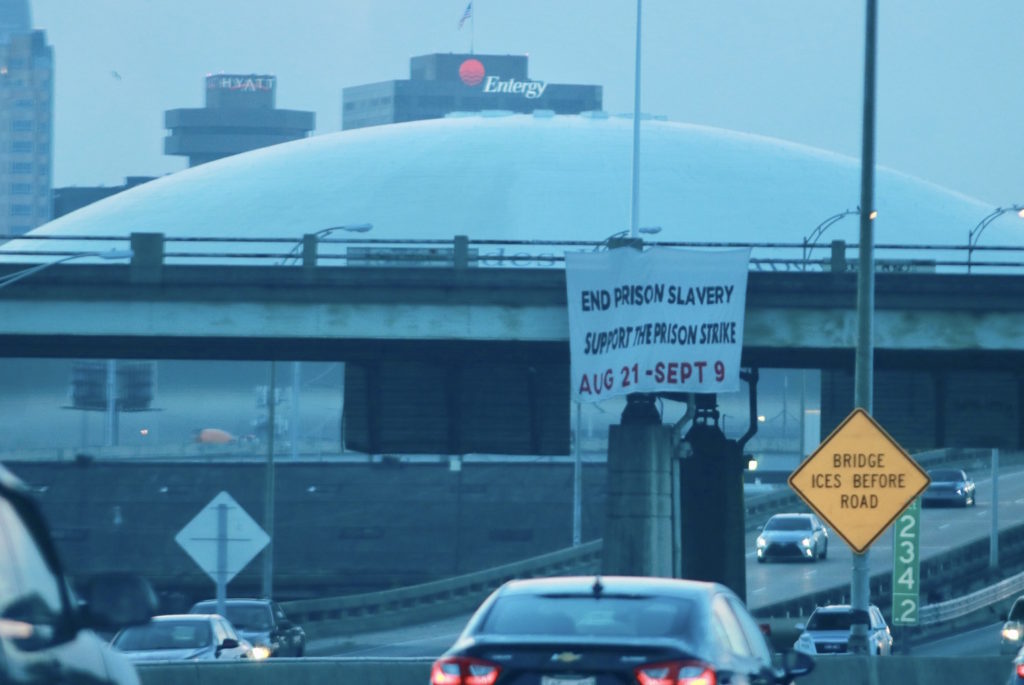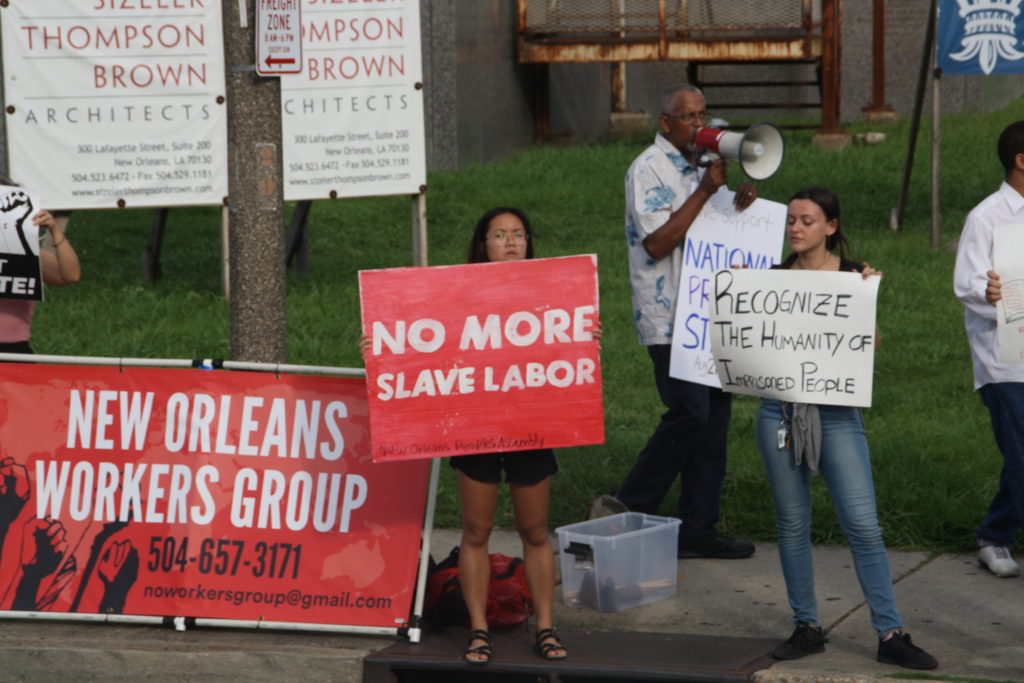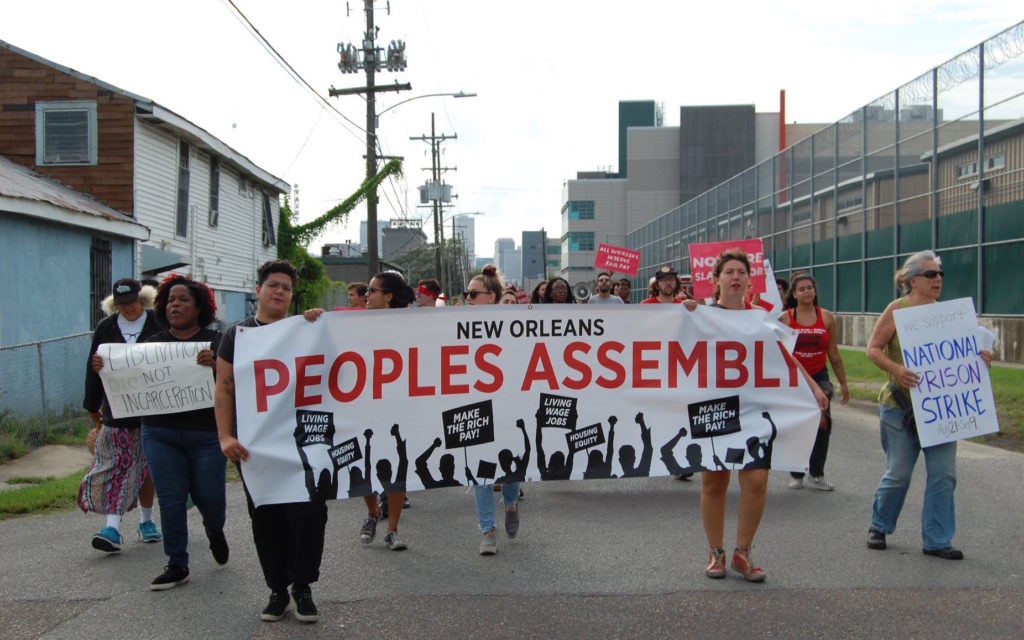
By LaVonna Varnado Brown
The conditions faced by inmates in facilities like Mississippi State Penitentiary, also known as Parchman Farm (a maximum-security prison farm located in Sunflower County), are horrific. These conditions include torture and the deliberate setting up of rivalries by sadistic guards. These are methods approved by Mississippi prison authorities to repress and divide inmates.
Despite the horrific conditions at Parchman (which used to be a plantation and is still run like one) many prisoners have united to organize inside, and their families and supporters have held many demonstrations asking for people to support their demands for release or for more livable conditions.
Among the independently documented conditions were 100 violations of the Safe Drinking Water Act in January alone. There were three dead inmates in three days. Family members report that there is absolutely no care being shown in operations (which is echoed by recent reports out of Louisiana prisons). Prison gangs are in control of other inmate’s food and sleeping rations.
Inmates are being celled with publicly known rivals, and people are being murdered. Seven homicides and five suicides have been reported at other facilities. An inmate named Bobby Lewis Vance died on February 15, making him at least the 17th inmate in the state’s troubled prison system to have died in less than two months.
Gov. Phil Bryant says the state has the issue “under control as best we can.” Mississippi’s prisons are run by abusive guards who facilitate corruption, and drug and drug paraphernalia sales inside the prisons. Parchman reports a 50% vacancy rate for job positions. All the guards need to be fired for their racism, sexism and for torture. Most prisoners could be released and for those who cannot, new personnel should be hired and vetted for their humanity and attitudes.
America is the world’s most incarcerated country. In southern states like Mississippi and Louisiana, incarcerated people outnumber the total sum of inmates in many countries. The labor of southern workers is being exploited in the same way that the inmates’ labor is. We are fattening the pockets of those that imprison and oppress us. We demand the abolition of mass incarceration, while we work to improve current conditions for inmates. It is time to unite and fight for the rights of all people.



